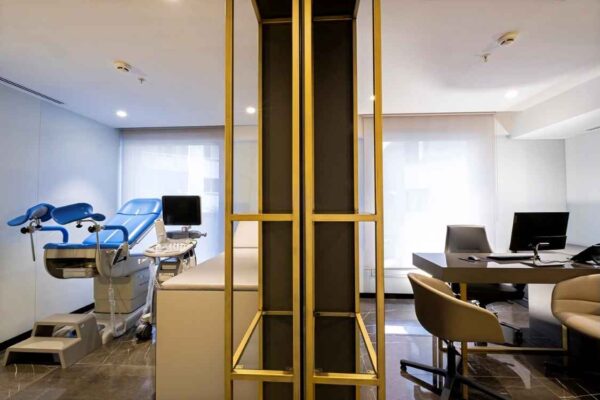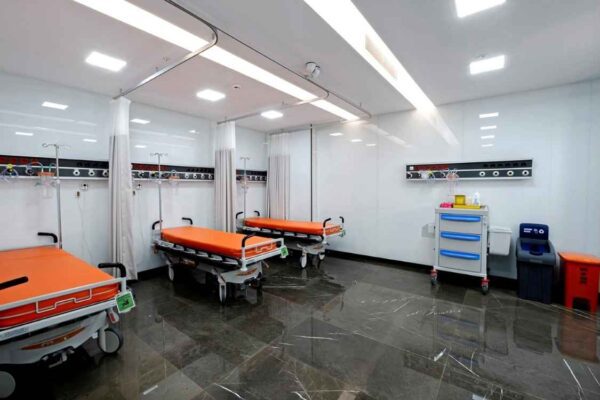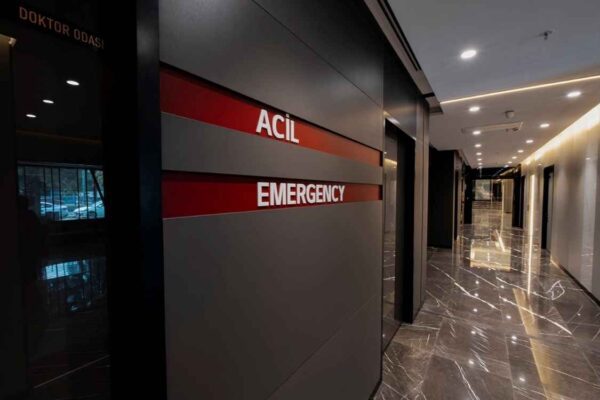The knees bear almost all the burden of the body. Pain in the knees may also occur due to different reasons. The biggest cause of pain in the knees is wear and tear in the cartilage structure.
Knee replacement surgeries are performed to relieve pain and restore function in severely affected knees. Knee replacement surgery also helps to increase the daily functions and life comfort of patients.
Who Can Have Knee Replacement Surgery?
People with pain and deformity in their knees undergo procedures such as exercises, medications and physiotherapy methods. However, the pain in the knees may disappear despite these. Activities such as climbing stairs in daily life are limited in these people.
In this way, it can be understood that the joint cartilage is also severely damaged. Knee replacement surgery is preferably recommended for people over the age of 65. If people have rheumatic diseases such as rheumatoid arthritis, prosthesis can be performed at an earlier age.
For some reasons, degeneration may occur in the knee joints. Degeneration of the knee joints is called knee calcification. This condition is usually seen at an advanced age. Excess weight gain also increases this condition.
Degeneration in the knee joints can occur due to tears, injuries and operations of the meniscus, rheumatologic diseases, infectious diseases and traumatic cartilage lesions. Knee replacement is applied to all patients with serious knee joint disease. If there is an infection in the knee joint, knee replacement cannot be performed.
How is Knee Replacement Surgery Performed?
During knee replacement surgery, damaged parts of the knee bones are removed. Metal and plastic implants are attached to the knee surface in the appropriate direction and covered. The following procedures are performed during knee replacement surgery:
- A small cannula is placed on the hands and feet. The cannula is used to administer antibiotics and other drugs during surgery.
- After the painkiller is effective, the knee is sterilized with a special solution.
- The process of coating the surfaces of the knee joint takes 1 hour.
- Implants are attached to the bones.
- First of all, temporary prostheses are applied. If deemed appropriate, actual prostheses are attached.
- If the surgeon is satisfied after the application of the implants, the incision is closed.
- A special tube is placed in the wound to remove natural fluids from the body.
- After a sterile dressing is made, an elastic bandage is wrapped from the foot to the groin.
- The effect of anesthesia starts to wear off after the patient is taken to the room. Then consciousness comes back.
- The knee will be tender for a few days.
After Knee Replacement Surgery
After knee replacement surgery, it is necessary to pay attention to some points in patients. The points to be considered after the surgery are as follows:
- If the patient is exposed to an infection, it is necessary to consult a doctor immediately.
- Controls and treatment should not be interrupted.
- The factors that create the risk of falling in living spaces should be eliminated.
- You should not do heavy sports.
- You should not do walks, jumps and climbs that will force the knee joints.
- It is necessary to pay attention to the diet. It is especially recommended to consume foods that will strengthen bone health.
What are the Ways to Prevent Infections After Knee Replacement Surgery?
It is very important to prevent infection after knee replacement surgery. Post-operative doctors make recommendations on many points that should and should not be applied. The implementation of these recommendations is very important for both shortening the healing process and prolonging the life of the prosthesis. The following points should be considered in order to prevent infections that may occur as risk factors after knee replacement surgery:
- Pre-surgery dental check-ups should be done, if there is any infection, it should be treated.
- It is necessary to pay attention to the cleaning of hands and feet.
- It is necessary to pay attention to the care of nails.
- Eye examination should not be interrupted and controls should be made.
FAQs
In Turkey, the payment options for knee replacement surgery may vary depending on the hospital or clinic. Generally, credit cards are widely accepted, allowing you to make payments in installments. Bank transfers are also commonly used. Cash payments may be an option, but it’s advisable to confirm with the specific healthcare facility beforehand.
No, knee replacement surgery does not typically come under insurance. While insurance coverage can vary depending on the policy and provider, knee replacement surgery is often considered an elective procedure rather than a medically necessary one. Therefore, it is important to check with your insurance provider for specific coverage details.
Knee replacement surgery is generally cheaper in Turkey due to several factors. These include lower labor costs, affordable medical infrastructure, and competitive pricing. Additionally, Turkey promotes medical tourism, offering cost-effective packages that include surgery, accommodation, and post-operative care. However, it’s important to consider quality, reputation, and individual healthcare needs when choosing a medical destination.
No, finance is generally not available specifically for knee replacement surgery. However, you may explore options such as health insurance coverage, medical loans, or personal savings to fund the procedure. It is advisable to consult with healthcare providers or financial institutions for more information on available options and eligibility criteria.
There is no strict age limit for knee replacement surgery in Turkey. The decision to undergo the procedure is based on an individual’s overall health condition and the severity of knee damage rather than their age. Surgeons evaluate each case individually to determine the most suitable course of treatment.
The success rate of knee replacement surgery is generally high, with a low risk of complications. However, like any surgical procedure, there are potential risks involved, such as infection, blood clots, implant failure, or nerve damage. The precise percentage of complications varies depending on individual factors and surgeon expertise. It is best to consult with a healthcare professional for a personalized assessment.
While knee replacement surgery is generally safe and successful, there are potential complications and risks associated with the procedure. These may include infection, blood clots, stiffness, nerve damage, implant failure, and persistent pain. It is important to discuss these risks with your surgeon and follow post-operative care instructions for the best outcome.
Our Team
Our Hospital
Atilla, Halide Edip Adıvar St.
No:57, 35270 Konak/İzmir































